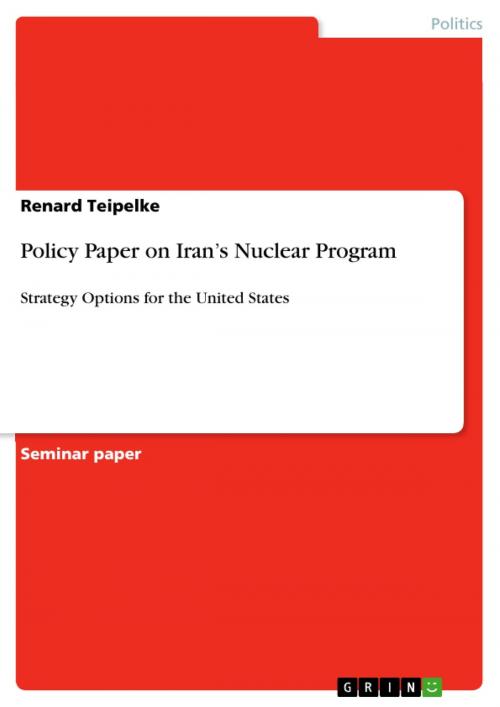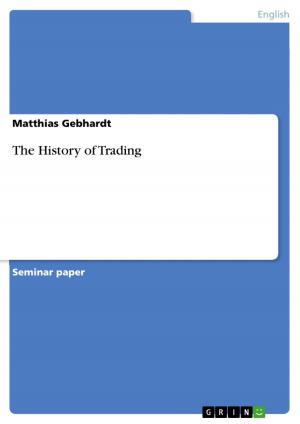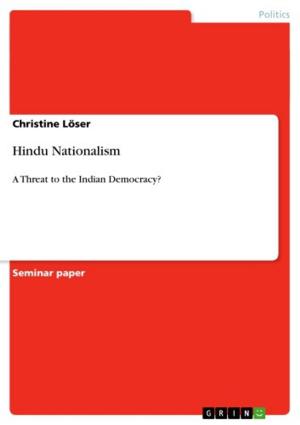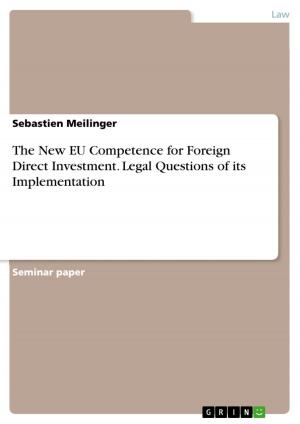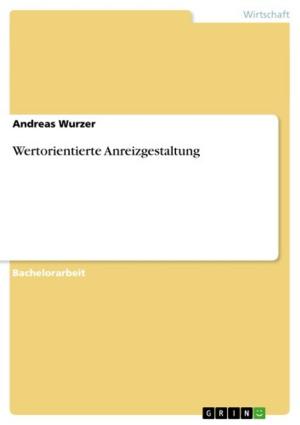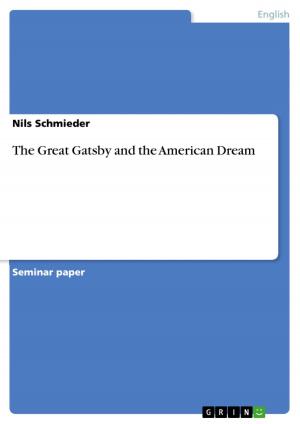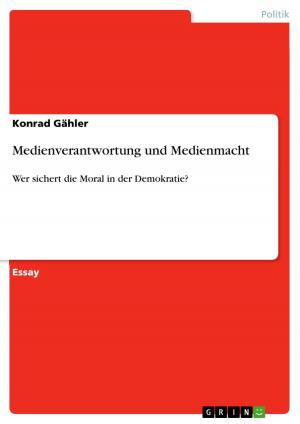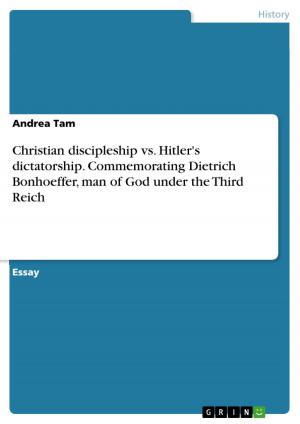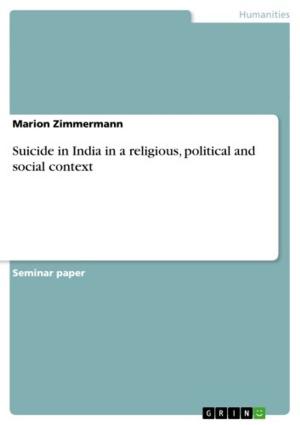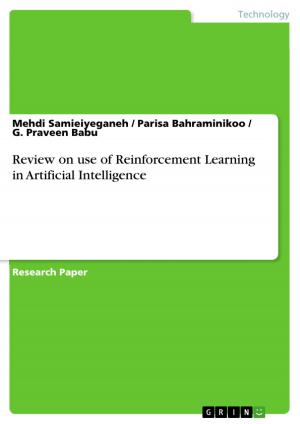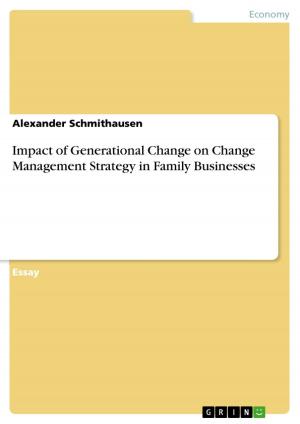Policy Paper on Iran's Nuclear Program
Strategy Options for the United States
Nonfiction, Social & Cultural Studies, Political Science, International, International Security| Author: | Renard Teipelke | ISBN: | 9783640603954 |
| Publisher: | GRIN Publishing | Publication: | April 25, 2010 |
| Imprint: | GRIN Publishing | Language: | English |
| Author: | Renard Teipelke |
| ISBN: | 9783640603954 |
| Publisher: | GRIN Publishing |
| Publication: | April 25, 2010 |
| Imprint: | GRIN Publishing |
| Language: | English |
Seminar paper from the year 2010 in the subject Politics - International Politics - Topic: Peace and Conflict Studies, Security, grade: 1,0, University of California, San Diego (Department of Political Science), course: National Security Strategy , language: English, abstract: The Iranian nuclear program has been one of the major controversies in international affairs in the 21st century. While Iran insists on the right to develop nuclear energy for peaceful purposes (under the terms of the Non-Proliferation Treaty, NPT), the international community fears the secret weaponization of Iran's program. Neither could Iran convince the international community that it does not (intend to) work on a program for nuclear weapons, nor could the United States, the United Kingdom, France, Russia, China + Germany (P5+1 countries) - implement effective measures in the form of diplomacy with sanctions to initially deter Iran from pursuing nuclear weapons capability. In the following policy paper, the problem will be first introduced by summarizing its history. A presentation of major players in the conflict and their preferences will help to analyze available strategy options for the United States as well as their possible consequences and chances of success. The following three strategies will be discussed...
Seminar paper from the year 2010 in the subject Politics - International Politics - Topic: Peace and Conflict Studies, Security, grade: 1,0, University of California, San Diego (Department of Political Science), course: National Security Strategy , language: English, abstract: The Iranian nuclear program has been one of the major controversies in international affairs in the 21st century. While Iran insists on the right to develop nuclear energy for peaceful purposes (under the terms of the Non-Proliferation Treaty, NPT), the international community fears the secret weaponization of Iran's program. Neither could Iran convince the international community that it does not (intend to) work on a program for nuclear weapons, nor could the United States, the United Kingdom, France, Russia, China + Germany (P5+1 countries) - implement effective measures in the form of diplomacy with sanctions to initially deter Iran from pursuing nuclear weapons capability. In the following policy paper, the problem will be first introduced by summarizing its history. A presentation of major players in the conflict and their preferences will help to analyze available strategy options for the United States as well as their possible consequences and chances of success. The following three strategies will be discussed...
